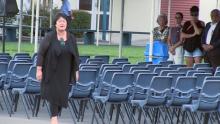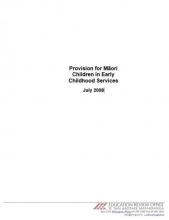Hauhaketia Ngā Taonga Tuku Iho Kia Puāwai Ai
E whakakoia ana tēnei aromātai i te tino hua motuhake o te mātauranga rumaki reo Māori o te kounga kairangi, me te hāpai whakahirahira anō hoki o tēnei i te tamaiti, mai i tōna whānautanga mai. Kei te mārama pū ngā kitenga, a, e whakatau ana hoki i te ariā e kī ana, e āhei ake ana ngā tamariki ki te eke angitu hei ākonga nā te noho ki tētahi taiao e whakanui ana, e whakamana ana hoki i te reo, te ahurea, me te tuakiri.













